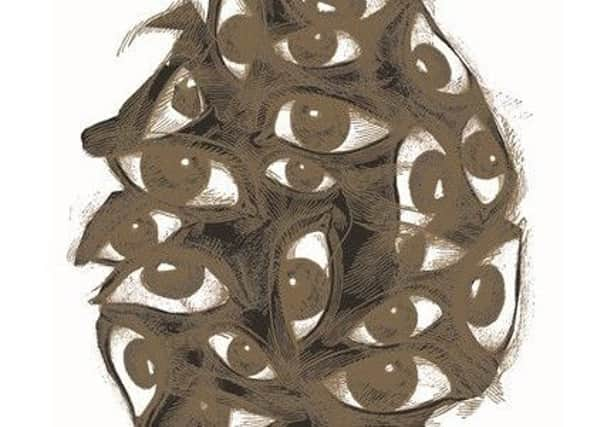Book review: The Cloven, By B Catling


The Vorrh is a mythical forest in Central Africa which might be the original Garden of Eden. People who go there go mad. The characters include a cyclops, Ishmael, brought up by Bakelite robots, who has a shaman make him have two eyes, and who (masked) has previously enjoyed the orgiastic pleasures of Essenwald, the city on the edge of the Vorrh, which thrives by exploiting it. We have also had Williams, who thought he could track the eerie woods, and his foe, Sidrus, who seemingly killed him, but whose spirit now inhabits and inhibits him. There are zombie slave-workers, who will comply if given a sacrifice. There is a prophetic girl whose skin is brindled, and a number of angels who have awoken since they were sent to sleep after managing to bungle their only task – keeping Adam and Eve away from the Tree. There is also a German psychologist in London, worrying about the angels and the thugs, a primitive tribe, and here comes the kicker – this time we get Nazis.
The Nazi occupation of Essenwald has one primary purpose. In the previous books, a railway line drove into the forest, to harvest the trees, but never through the forest. The Nazis have other plans. They will bisect the Vorrh, to maximise production. Despite repeated warnings, they go ahead with the plan.
Advertisement
Hide AdDivision, as the title suggests, is the theme of the novel. It is also ambiguous. “Oneofthewilliams” and Sidrus – who becomes “Wassidrus” – are forcibly separated by means of magic and surgery at the outset; both become mangled versions of humans, much as the fascist war machine will start shredding flesh. Both are sent on quests. Ishmael too is on a journey, since he regretted wanting two eyes, and, Oedipally, put one out in the previous book.
The corpus callosum, the split in the human brain, is a metaphor for such splicing. Ishmael has no division, but divided himself. The other characters variously foment, inspire and thrive on such separation of the rational and the irrational, the natural and the mechanical, the fervid and the languid.
But “cloven” is a difficult word. It comes from cleave and one can cleave to something as much as something may cleave apart. Also, it refers to the most obvious cloven, the hoof, and the way in which Catling makes the human monsters genuinely demonic is done with skill and without voyeurism. As I think back over the books, it is perhaps their genuine engagement with the idea of evil which seems so striking. Evil might not be a bad decision or a nasty intention. In these books it might be a horrible reality.
Yet, right at the end, we get a strange benediction – from whom I shall not say – “Thank you for letting me save foolish humanity”. Although all three books explore various horrors, from colonial subjugation to anti-Semitism to violent self-fashioning to thinking that sex and love are the same thing to how the far right creeps up (prescient indeed), the close of it is something other altogether.
There have been books – I’d suggest The Hidden Life Of Trees by Peter Wohlleben and The Secret Life Of Trees by Colin Tudge – that look seriously at how a forest is not just a bunch of trees but an ecosystem, and one which communicates to itself. The roots and rhizomes mean something more than the individual stalk or the falling leaf. The great strength of this trilogy has been to supplant humanity, and replace its obsession with cutting and dividing with the eerie interconnectedness of the trees. The humans are becoming “restless and self-obsessed” (by the way, a lovely assonance), but also this is where “the forest cared nothing for the flickering life of men”. The Vorrh “mirrored the transition perfectly with as much empathy as silvered glass feels for those who peer into it”.
There is a couplet by Andrew Marvell – “Annihilating all that’s made / To a green thought in a green shade”. That, in a way, summarises the Vorrh trilogy. Nature will have its revenge, its divine oblivion. While humanity perpetually fissures and evaporates, the trees persist. They are, after all, a lot older than us, and most likely wiser.
Advertisement
Hide AdThe cyclops and blinded Ishmael recalls the famous dictum of Erasmus: in the land of the blind, the one-eyed man is king. Yet his capitulation to something more collective and collaborative in this glorious ending is not about who is king, but who is kind.
When they write the history of 21st century literature, I am sure that this series of books will be more than prominent.
The Cloven, By B Catling, Coronet, £20